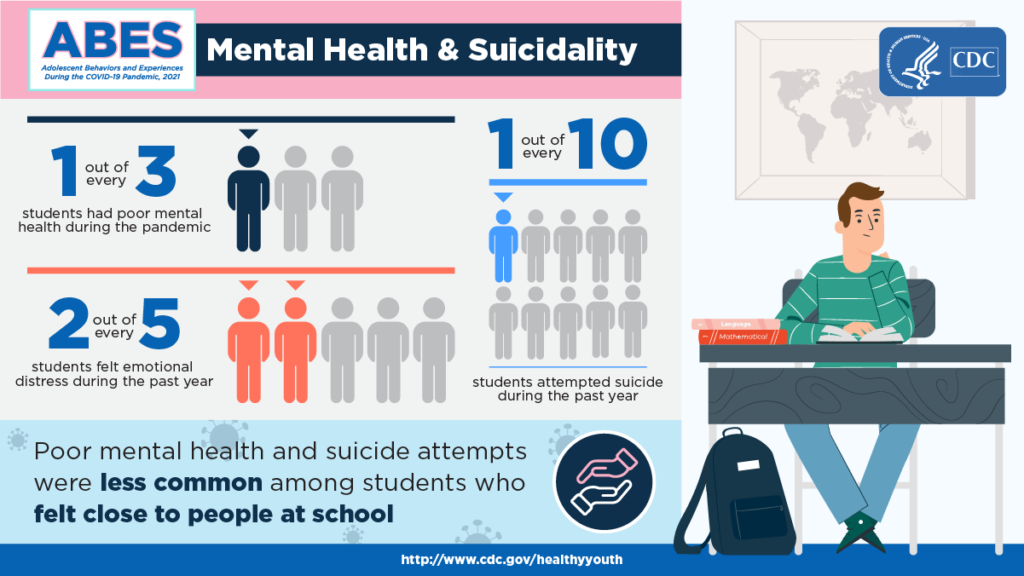By We Level Up WA | Editor Yamilla Francese | Clinically Reviewed By Lauren Barry, LMFT, MCAP, QS, Director of Quality Assurance | Editorial Policy | Research Policy | Last Updated: May 25, 2023
What Is Trauma Bonding?
Trauma bonding is a complex psychological phenomenon when an individual develops a strong emotional attachment to an abusive or harmful person or situation. It commonly arises in relationships characterized by repeated abuse, manipulation, and trauma cycles. Despite the destructive nature of the bond, the victim becomes emotionally entangled and reliant on the abuser for validation, safety, and a sense of belonging. This bond can be particularly challenging to break due to various factors, including intermittent reinforcement, fear, perceived loyalty, and a distorted sense of love.
Trauma bonding often involves a mixture of positive and negative experiences, which creates a confusing and powerful emotional connection. The victim may experience periods of kindness, affection, or respite from abuse, leading to a deep attachment that becomes entangled with the trauma experienced. Over time, this bond can intensify, trapping the individual in a harmful cycle that can perpetuate the abuse and hinder the ability to leave the toxic relationship.
Understanding trauma bonding is crucial for individuals, professionals, and support systems to recognize the complex dynamics and appropriately assist those affected. By acknowledging the profound psychological impact of trauma bonding, individuals can begin to untangle the emotional web, seek help, and embark on a journey toward healing, recovery, and restoring healthy relationships.
7 Stages Of Trauma Bonding
Trauma bonding typically unfolds through a series of stages, each contributing to deepening the emotional attachment between the victim and the abuser. While the progression may vary from person to person, here are seven common stages often observed in trauma bonding:
- The Idealization Stage: The abuser presents a charming and idealized version of themselves, creating a sense of safety, love, and acceptance. This stage establishes a foundation for the bond to form.
2. The Devaluation Stage: The abuser begins to exhibit abusive behaviors, including verbal, emotional, or physical abuse. The victim may feel confused, hurt, and question their own self-worth, but may also cling to the hope of returning to the initial idealized stage.
3. Trauma Incidents: Intense traumatic incidents deepen the emotional connection. The victim’s fear, pain, and vulnerability become intertwined with the abuser, leading to a warped sense of intimacy.
4. Intermittent Reinforcement: The abuser alternates between moments of kindness, apologies, or remorse and further episodes of abuse. This intermittent reinforcement creates an addictive pattern as the victim desperately seeks the positive aspects of the relationship.

Skip To:
Learn More:
- Obsessive Compulsive Personality Disorder & OCD
- DBT Therapy, Conditions to Treat, The 5 Functions of DBT, Benefits & Mental Health Treatment
- What are Obsessive Thoughts? Their Connection With OCD
- CBT Therapy for Mental Health Disorders, Process, Efficacy, Techniques, Types & CBT for Co-Occurring Disorders
- Co-occurring disorders, Diagnosis, Risk Factors, Mental Health, Substance Abuse & Dual Diagnosis Rehab Washington
- We Level Up WA Mental Health Center
- How to help someone with Drug Addiction and Depression, Dual Diagnosis Rehab Washington
- 25 Signs of Narcissistic Parents
5. Cognitive Dissonance: The victim experiences conflicting emotions, trying to reconcile the abuser’s loving moments with the abusive behavior. This internal conflict strengthens the bond, as the victim believes the abuser’s positive side is the “real” person.
6. Isolation and Dependence: The abuser isolates the victim from friends, family, and support systems, further increasing their reliance on the abuser for emotional support and validation. The victim may feel trapped and dependent on the abuser for their emotional well-being.
7. Self-Preservation and Denial: The victim may deny or minimize the abuse, rationalizing the abuser’s behavior to protect themselves from the harsh reality. This self-preservation mechanism perpetuates the cycle of trauma bonding and hinders the victim’s ability to break free.
Understanding these stages can help individuals recognize the patterns of trauma bonding and take the necessary steps toward breaking the cycle. Seeking professional help, building a support network, and prioritizing self-care are crucial in healing and reclaiming one’s life from trauma bonding.
Trauma Bonding Facts
What Is Trauma Bond?
Trauma bonding is a psychological phenomenon where a person develops a strong emotional attachment to an abusive or harmful individual or situation. It occurs in relationships characterized by cycles of abuse and manipulation. The bond forms due to a mix of positive and negative experiences, creating a deep attachment entangled with the trauma endured.
Breaking free from trauma bonding can be challenging due to intermittent reinforcement, fear, loyalty, and distorted perceptions of love. Understanding trauma bonding is essential for recognizing the complex dynamics and seeking help to heal and establish healthy relationships.
Signs Of Trauma Bonding
- Strong emotional attachment to an abusive person or situation.
- Difficulty breaking free from the abuser despite the presence of harm.
- Rationalizing or justifying the abuser’s actions.
- Feeling a sense of loyalty towards the abuser.
- Fear or anxiety about leaving the relationship.
Trauma Bonding Treatments
- Individual Therapy: Engaging in therapy, such as cognitive-behavioral therapy (CBT) or trauma-focused therapy, to explore and process the underlying trauma, develop coping mechanisms, and challenge distorted beliefs and patterns associated with the bond.
- Supportive Networks: Building a strong support system of friends, family, or support groups who can provide understanding, encouragement, and validation during the healing process.
- Safety Planning: Creating a safety plan to establish boundaries, develop strategies for self-protection, and ensure physical and emotional safety during recovery.
- Education and Psychoeducation: Learning about trauma bonding, its effects, and healthy relationship dynamics through educational resources or psychoeducational groups can help individuals gain insight, understand their experiences, and make informed decisions.
- Self-Care and Self-Compassion: Practicing self-care activities, such as exercise, relaxation techniques, and hobbies, while cultivating self-compassion to promote healing and rebuild self-esteem.
End the Emotional Pain. Get Your Life Back.
Feeling Depressed, Anxious or Struggling with Mental Health Illness? Get Safe Comfortable Mental Health Dual Diagnosis High-Quality Therapy From Counselors That Care. Begin Your Recovery Now.
Hotline: (509) 348-4077

Trauma Bonding Statistics
In this section, we delve into trauma bonding through a statistical lens, shedding light on the prevalence and impact of this complex psychological phenomenon. By exploring empirical data and research findings, we aim better to understand the scope and consequences of trauma bonding.
92%
92% of women in domestic violence shelters experienced symptoms consistent with trauma bonding.
Source: Dutton, D. G., & Painter, S. L. (1993).
75%
Trauma bonding was identified as a key factor in the decision-making process of 75% of women who had experienced domestic violence and were attempting to leave their abusive partners.
Source: Smith, C. M., Eagar, R. K., & Fisher, D. G. (2003).
65%
Among survivors of domestic violence, approximately 65% who had been in an abusive relationship for over two years exhibited signs of trauma bonding.
Source: Tolman, R. M., Rosen, D., & Warner, L. R. (2000).
Get Help. Get Better. Get Your Life Back.
Searching for Accredited Dual Diagnosis Mental Health Centers Near You?
Even if therapy failed previously, or are in the middle of a difficult crisis, we stand ready to support you. Our trusted behavioral health specialists will not give up on you. When you feel ready or just want someone to speak to about counseling alternatives to change your life call us. Even if we cannot assist you, we will lead you to wherever you can get support. There is no obligation. Call our hotline today.
FREE 24/7 Dual Diagnosis Mental Health Services Hotline
10 Signs Of Trauma Bonding
Recognizing the signs of trauma bonding is crucial for understanding the dynamics and impact of a trauma bond relationship. Here are 10 common indicators to look out for:
- Intense Emotional Attachment: One of the hallmark trauma bonding signs is an unusually strong emotional attachment to the abuser or the toxic relationship itself.
- The cycle of Abuse: Trauma bond relationships often involve a repetitive pattern of abuse followed by intermittent periods of affection or kindness.
- Rationalization of Abusive Behavior: Victims may find themselves making excuses or justifying the abuser’s actions, attempting to minimize the severity of the abuse.
- Loyalty to the Abuser: Despite the harm endured, individuals experiencing trauma bonding may feel unwavering loyalty or devotion to their abuser.
- Fear of Leaving: A deep-rooted fear or anxiety arises when considering leaving the relationship due to the perceived consequences or lack of safety outside the trauma bond.
- Conflicting Emotions: Victims often experience conflicting emotions, simultaneously loving and hating the abuser, leading to confusion and emotional turmoil.
- Isolation and Dependency: Trauma bond relationships often involve the abuser isolating the victim from their support networks, increasing their dependency on the abuser for emotional validation and a sense of identity.
- Idealization of the Abuser: Despite the abusive behavior, victims may idealize the abuser, holding onto an idealized image of them during moments of kindness or affection.
- Self-Esteem Issues: Trauma bonding can result in a diminished sense of self-worth, with the victim believing they deserve the abuse or feeling unable to find better alternatives.
- Denial or Minimization: Victims may deny or downplay the severity of the abuse, often as a self-protective mechanism to cope with the trauma bond.
Recognizing these trauma-bonding signs is an important step towards understanding the complexity of the relationship and seeking support to break free from the cycle of abuse.
First-class Facilities & Amenities
World-class High-Quality Mental Health Services & Behaviroal Health Substance Abuse Treatment
Rehab Centers TourRenowned Mental Health Centers. Serene Private Facilities. Inpatient Rehab Programs Vary.
Mental Health Helpline: (509) 348-4077Proven recovery success experience, backed by a Team w/ History of:
15+
Years of Unified Experience
100s
5-Star Reviews Across Our Centers
10K
Recovery Success Stories Across Our Network
- Low Patient to Therapist Ratio
- Comprehensive Dual-Diagnosis Treatment
- Complimentary Family & Alumni Programs
- Coaching, Recovery & Development Events
- Comfortable Onsite Medical Detox Center
How To Break A Trauma Bond and How To Cope?
Breaking a trauma bond and coping with its effects require a deliberate and compassionate approach. Here are some strategies to consider:
- Recognize and Validate: Acknowledge that you are in a trauma bond and understand that your feelings and experiences are valid. Recognizing the harmful dynamics is the first step towards breaking free.
- Seek Professional Help: Engage the support of mental health professionals experienced in trauma and abuse. Therapy, such as cognitive-behavioral therapy (CBT) or trauma-focused therapy, can provide guidance, tools, and a safe space to process the trauma bond and its impact.
- Build a Support Network: Surround yourself with a strong support network of trusted friends, family, or support groups who can provide understanding, encouragement, and validation. Sharing your experiences and feelings with others can help you gain perspective and strength.

- Establish Boundaries: Set clear boundaries with the abuser and prioritize your well-being. This may involve limiting or cutting off physical and emotional contact to create a safe space for healing.
- Practice Self-Care: Prioritize self-care activities that nurture your physical, emotional, and mental well-being. Engage in activities that bring you joy, relaxation, and self-reflection. This can include exercise, mindfulness, hobbies, or creative outlets.
- Challenge Distorted Beliefs: Work with a therapist to challenge and reframe the distorted beliefs ingrained by the trauma bond. This can help you develop healthier relationships, love, and self-worth perspectives.
- Education and Empowerment: Educate yourself about trauma bonding, the dynamics of abuse, and healthy relationship patterns. Knowledge empowers you to recognize red flags, set healthy boundaries, and make informed choices.
- Practice Self-Compassion: Be gentle with yourself throughout the healing process. Practice self-compassion and remind yourself that you deserve love, respect, and a safe and healthy relationship.
- Patience and Time: Breaking a trauma bond takes time and patience. Healing is a journey, and progress may come in small steps. Be kind to yourself and allow yourself the time needed to heal and recover.
Remember, breaking a trauma bond can be challenging, but it is possible with the right support, self-care, and commitment to your well-being. Reach out for help, take it one step at a time, and believe in your strength to reclaim your life and build healthier relationships.
World-class, Accredited, 5-Star Reviewed, Effective Mental Health Dual Diagnosis Programs. Complete Integrated Inpatient Rehab with Free Post Discharge Therapy Planning.
Hotline: (509) 348-4077End the Emotional Pain Rollercoaster. Gain Stability & Happiness Through Recovery Treatment. Start Mental Health Counseling Today. Get Free No-obligation Guidance by Behaviroal Health Specialists Who Understand Mental Health Recovery.
Popular Trauma Bonding FAQs
-
How to break a trauma bond with a narcissist?
Breaking a trauma bond with a narcissist involves recognizing the abuse, seeking professional support, setting boundaries, prioritizing self-care, building a support network, challenging distorted beliefs, and practicing self-compassion. It is a process that requires awareness, support, and a commitment to your well-being.
-
Is breaking a trauma bond very difficult?
Yes, breaking a trauma bond can be extremely challenging. Trauma bonds are powerful and complex emotional attachments that can make leaving an abusive or harmful situation difficult. They are often reinforced by intermittent reinforcement, fear, and psychological manipulation. However, with the right support, self-care, and professional guidance, it is possible to break free from a trauma bond and heal from the effects of the abuse. It may require time, patience, and a commitment to your well-being, but remember that you deserve to live a life free from the grip of a trauma bond.
8 Steps & Tips for Maintaining Your Mental Wellbeing Informative Video
Video Script
We Level Up WA is an advanced mental health center offering specialized therapy programs tailored to individual needs. Our highly skilled professionals provide personalized, evidence-based treatments to address specific challenges and goals. Our facility features state-of-the-art amenities, including outdoor relaxation areas, to promote holistic healing. We prioritize creating a compassionate and supportive environment, empowering clients to participate in their recovery journey actively. At We Level Up WA, we aim to facilitate lasting mental well-being and guide individuals toward growth and transformation. Take the crucial step towards a brighter future by choosing our center for cutting-edge treatments and nurturing care.
Experience Transformative Recovery at the We Level Up Treatment Center.
See our authentic success stories. Get inspired.
Get the help you deserve.



Start a New Life
Begin with a free call to a behavioral health treatment advisor. Learn more about our dual-diagnosis programs. The We Level Up treatment center network delivers recovery programs that vary by each treatment facility. Call to learn more.
- Personalized Care
- Caring Accountable Staff
- World-class Amenities
- Licensed & Accredited
- Renowned w/ 5-Star Reviews
We’ll Call You
Search We Level Up WA / Trauma Bonding & Resources
Sources
- National Institute of Mental Health (NIMH): Trauma page – https://www.nimh.nih.gov/health/topics/trauma/index.shtml
- Substance Abuse and Mental Health Services Administration (SAMHSA): Trauma and Violence page – https://www.samhsa.gov/trauma-violence
- Centers for Disease Control and Prevention (CDC): Adverse Childhood Experiences (ACEs) page – https://www.cdc.gov/violenceprevention/aces/index.html
- Office for Victims of Crime (OVC): Trauma page – https://www.ovc.gov/assist-victims/Understanding-Victimization/Trauma
- National Child Traumatic Stress Network (NCTSN) – https://www.nctsn.org/
- National Domestic Violence Hotline – https://www.thehotline.org/
- Office on Women’s Health (OWH): Trauma and Violence page – https://www.womenshealth.gov/mental-health/trauma-and-violence
- National Institute on Drug Abuse (NIDA): Trauma, Violence, and Substance Use page – https://www.drugabuse.gov/drug-topics/comorbidity/trauma-violence
- Office of Justice Programs (OJP): Office for Victims of Crime – https://www.ojp.gov/ovc
- National Center for PTSD (Department of Veterans Affairs) – https://www.ptsd.va.gov/